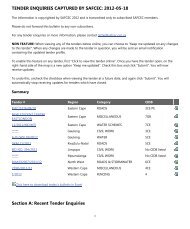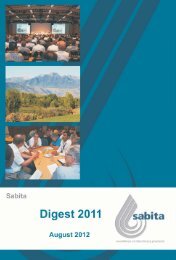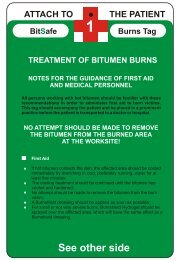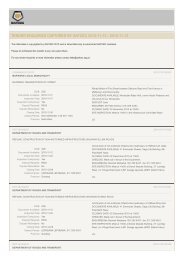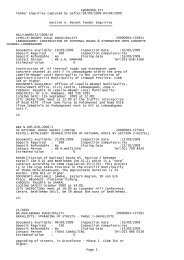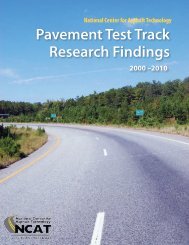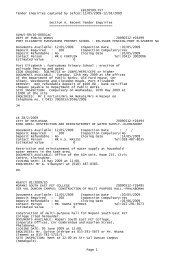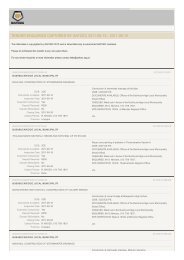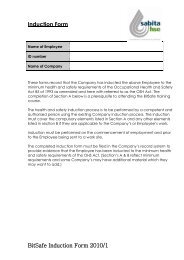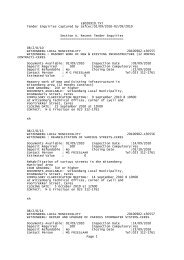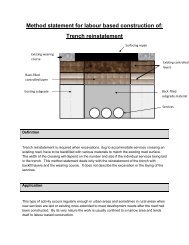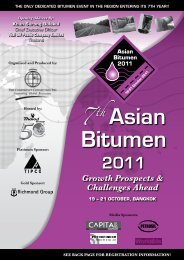DIGEST 2006 - Sabita
DIGEST 2006 - Sabita
DIGEST 2006 - Sabita
You also want an ePaper? Increase the reach of your titles
YUMPU automatically turns print PDFs into web optimized ePapers that Google loves.
Towards industry self-regulation:<br />
The development of a Road<br />
Transport Management System<br />
in South Africa<br />
Paul Nordengen<br />
Research Group Leader<br />
Network Asset Management Systems<br />
CSIR Built Environment<br />
Heavy vehicle overloading<br />
has been South Africa's<br />
nemesis for decades,<br />
despite efforts at more<br />
effective law enforcement.<br />
Overloading causes<br />
accelerated road deterioration<br />
and, together with inadequate<br />
vehicle maintenance, driver<br />
fatigue and poor driver health,<br />
contributes significantly to<br />
South Africa's poor road safety<br />
record.<br />
In July 2003, the forestry industry<br />
embarked on a dti/Forestry South<br />
Africa-funded project with the<br />
CSIR, National Productivity<br />
Institute (NPI) and Crickmay &<br />
Associates to introduce a<br />
self-regulation system, the Load<br />
Accreditation Programme (LAP) to<br />
address overloading, vehicle<br />
maintenance and driver wellness<br />
in the timber transport industry.<br />
The initiative was in line with the<br />
DoT's National Overload Control<br />
Strategy (NOCS) in which one of<br />
the recommended interventions<br />
was to explore the concept of<br />
self-regulation and to facilitate<br />
such an industry-led initiative to<br />
complement law enforcement. The<br />
NOCS identified the Australian<br />
National Heavy Vehicle<br />
Accreditation Scheme (NHVAS) as<br />
one that had a number of<br />
components appropriate to the<br />
South African situation.<br />
Background<br />
The successful implementation of<br />
LAP in the forestry industry – the<br />
extent of overloading in terms of<br />
number of heavy vehicles charged<br />
with overloading dropped by 40%<br />
over a two year period – led to<br />
various stakeholders identifying<br />
the need to establish a national<br />
LAP steering committee to expand<br />
the programme to other<br />
industries. A national LAP<br />
workshop was held in June 2004,<br />
during which issues such as the<br />
vision, mission, mandate,<br />
objectives, structure and terms of<br />
reference of the proposed<br />
committee were discussed and<br />
debated. Stakeholders and<br />
organisations represented at the<br />
workshop included the NDoT,<br />
159



